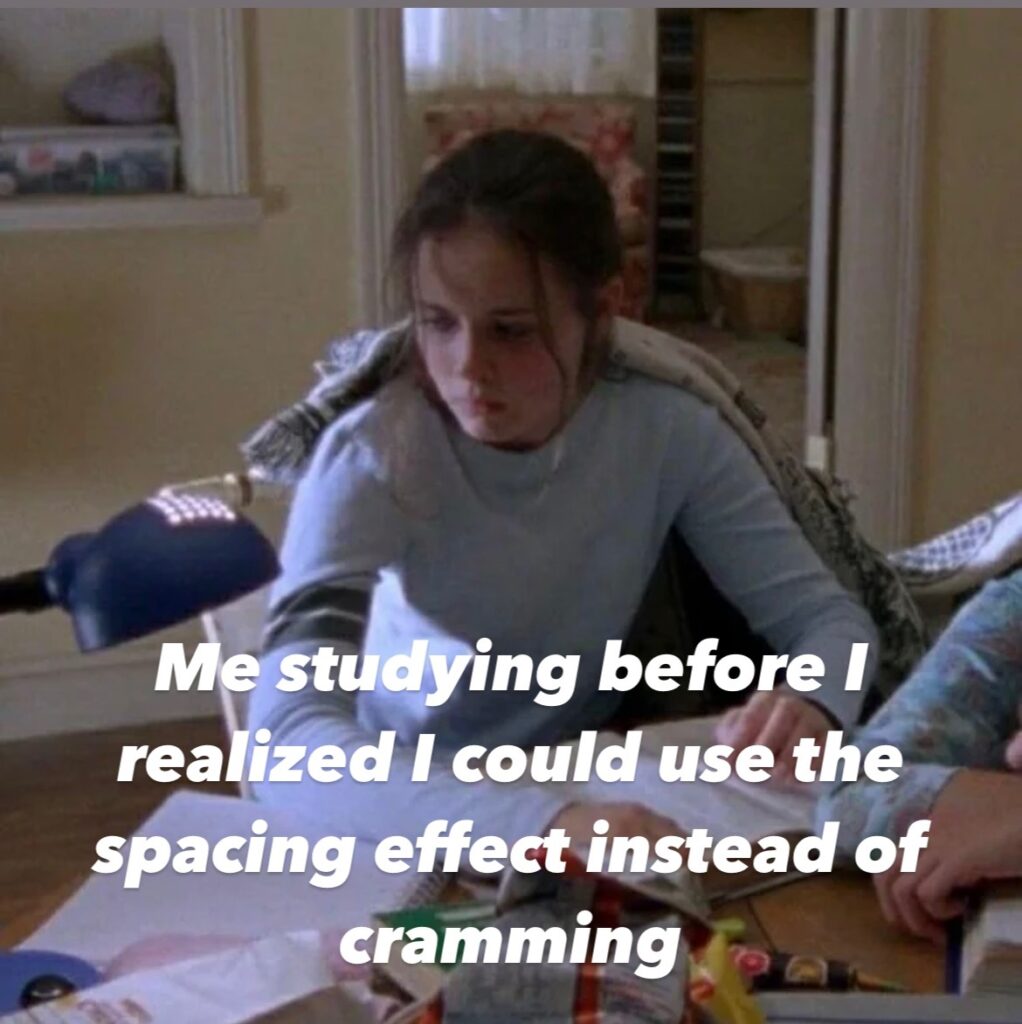By Elly Jones
Don’t exhaust yourself, use the spacing effect
It is easy to fall victim to procrastination and decide to cram a study session right before an exam. Procrastinating will only give you mediocre scores and a whole Lotta stress. Our brain can memorize information much more successfully when studying is spaced out across hours, days, or even weeks. Studying too much over a short period can lead to overstimulation of neurons and mental fatigue. If you want to get great exam scores while still being able to go out and enjoy yourself try out the spacing effect. Even if you only study for ten minutes every day for a week, you’ll have more success in memorizing the implementation than you would if you studied for two hours only once. You don’t have to give up your weekends to succeed.

